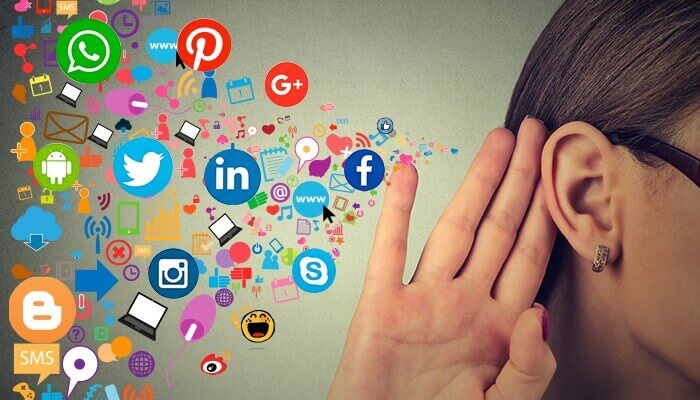
The integration of technology in the hotel industry has spurred a huge increase in hotel and guest interaction online.
NB: This is an article from Travel Media Group
The act of responding and connecting with those guests online is defined as “social listening.” Looking at some real-world, industry interactions, we can see how social listening is utilized by the hotel in each of the following situations:
- Asking a Question
- Sharing a Positive Experience
- Discussing a Negative Experience
The first example, we will take a look at is a traveler asking a question via Facebook messenger. Remember, Facebook messenger is a form of direct message, so it is a 1-on-1 conversation versus comments which are made public in the eyes of other travelers.

So just like that, the hotel has secured multiple direct bookings – all by answering a simple message about their pet policy on Facebook. This is 2021: instead of picking up the phone and calling the property as they have done for decades, travelers are using these social channels to connect with businesses. And the scary part is, if you aren’t there to answer them, your competitor down the street will and you will lose out on that booking.
Let’s take a look at another example of social listening in the real world. This one comes to us from a guest on Instagram tagging and mentioning the property in a post.

The traveler shares details of their incredible stay and pairs it with a beautiful picture of the property posted on their account. The hotel is notified that they were tagged and mentioned in the post and quickly notice the amount of engagement from the guest’s followers, over 1,000 likes. The property then likes and comments on the post, and direct messages the account to ask if they can share it on their social media accounts. The shared post gets incredible reach and the hotel is able to grow its social following, increasing the chances of guest conversion online.
But what happens when the experience shared isn’t a positive one. This example comes to us from an upset traveler on Twitter, live-tweeting his experience.

So in the hotel’s response, they were not only able to address the concern of the upset guest, but also able to inform future travelers of their policies and procedures. Now it’s important for the hotel to respond to this last tweet because it shows resolution and follow through on the hotel’s part. It might not be as important to the guest you are interacting with since their issue was resolved, but it does demonstrate to future travelers your willingness to listen to guests, your problem-solving abilities, and level of customer service.
Social Media Objectives
So as you can see, there are some real, everyday revenue-impacting situations that involve social listening in the hotel industry. However, this evolution of social media interaction is not something that just happened overnight.

- In the late 2000s and early 2010’s the objective for the hotel industry was just to be on social media and have an active account. Today, it’s not enough just to have a Facebook page or create an Instagram account, almost every business does and when consumers do research, they expect to find one.
- As the decade continued into the mid-2010s, hoteliers’ attention turned to getting more followers onto their pages and increasing their online audience.
- Today in 2021 and beyond, the objective of hotels should be to engage that audience. Social listening is a catalyst for that engagement.
Having a large number of followers on your page is a powerful thing and impressive feat, but if you aren’t engaging and connecting with them, how will you ever win their booking?
Social Listening Objectives
Social interaction is more than just liking a post on Facebook or responding to a DM on Instagram:
- It’s a way to manage your online reputation as we saw with Twitter.
- It’s a customer service tool, as we discussed in the Facebook Messenger example.
- Most importantly, it’s a strategy to create more booking opportunities for your hotel as we saw in the Instagram example.




